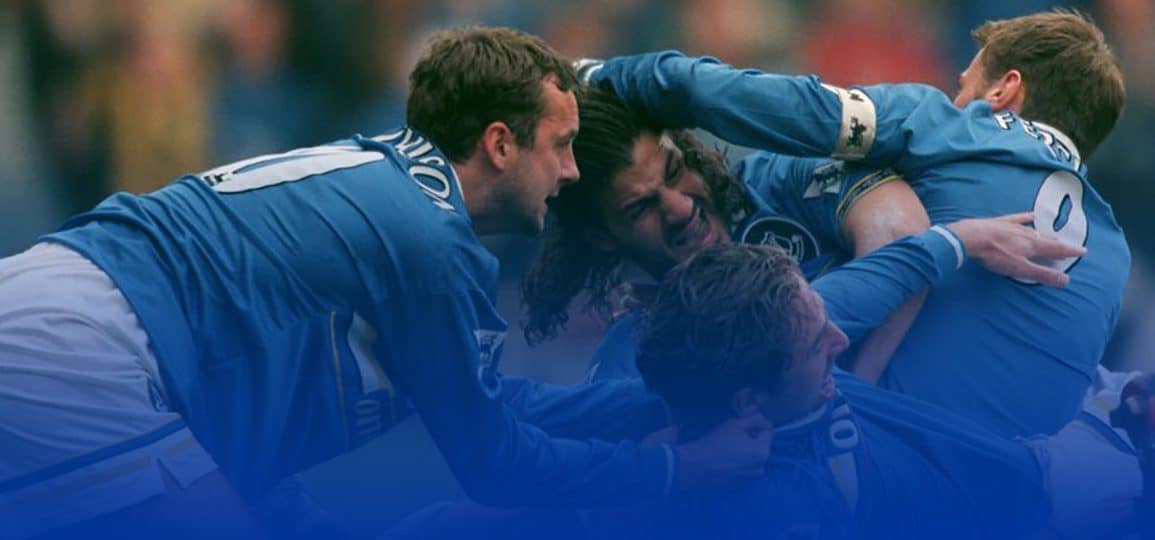Objectively, relegation (and the fear of it happening) shouldn’t be as anxiety-inducing as it often is. Bearing in mind that silverware is generally unattainable for most clubs, that the top six is pretty much a closed shop in English football and that, in aesthetic terms alone, the top flight is now only marginally better than the Championship (with genuine world-class talent only residing in the higher reaches), should playing in a lower tier be rendered as such a footballing disaster?
That’s the problem with objective thinking though. It is so rarely applicable to football. Of course, if a team goes down it is not the end of the world. The club still exists, games are still played, a sense of purpose remains. But that kind of thinking misses the point about football. This is a sport where upward progression is everything. You as fans are meant to want your club to play in the highest division.
And this isn’t entirely to do with desiring to watch more aesthetically pleasing football, or of wanting to tap into the riches available the higher up you go, you also want it simply because that’s what a fan is supposed to want.
And that’s what makes the current managerial choice at Everton so vexing. Because, right now, survival is everything. Although some fans understandably want a glamorous manager who can ‘take us to the next level’ and others feel that giving an ‘Everton’ man like Unsworth a chance is the right thing to do, none of these two choices guarantees survival.
I am fortunate (or unfortunate) enough to have lived through the last period in the club’s history that was truly characterised by relegation fears. Back in the 1990s (and early 2000s), the gravitational pull of the bottom three seemed to have a constant hold over Everton. On two occasions, in 1994 and 1998, the club only survived because other teams were more abysmal.
As fans, we look back on Wimbledon 1994 for example, and praise the resilience of the players and the power of the crowd. But it’s often forgotten that had the club’s rivals all won, then all that resilience and that mighty atmosphere would have counted for nothing.
Managerial choice in this era was hugely relevant to the club’s turmoil. Bosses like Walker, Smith and Kendal (Mark III), exacerbated the club’s underlying problems, turning Everton from a team that might have had a poor season into one that was threatened with the drop.
No better example of this was provided in 1994/95, when Joe Royle took over the managers’ hot seat. Royle inherited a squad that under Mike Walker was spineless, uncreative and destined to go down. But when playing under Royle, that same group of players became strong, creative and capable of beating anyone. And through this turnaround they prospered and survived.
To turn back to today, as valuable as the points were, the recent win against Watford might have muddied the waters slightly when it comes to who will take the manager’s seat at Goodison. The victory took the pressure off slightly, hinting that perhaps the club is not headed for a relegation dog fight this season. And perhaps Unsworth might have what it takes.
But that game could so easily have gone against Everton. It was not a convincing performance and the result was only achieved because Unsworth was able to take a huge risk. Facing defeat in the second half, and with the prospect of it being his last game in charge, the caretaker manager had nothing to lose and threw the dice.
Although it was a gamble that paid off, over the course of a long, grinding season, such cavalier moments will inevitably be less likely. It is the performance that took place before Niasse made it 2-1 that is more reflective of Everton under Unsworth; a performance that hardly eases relegation worries.
Nothing seen home or away this season suggests that the club is not in for a tough campaign. The problems that the current Everton squad possess would vex any new incumbent. Everton are in trouble and if the club wants to remain a member of the top flight, and satisfy that elemental need to play in the highest division, then that has to be a major consideration when the next manager is appointed.
But aside from simply wanting to play in the Premier League, Everton also have other reasons to need survival. The club is once again at a crossroads. With Moshiri, Bramley-Moore and efforts being undertaken to improve the commercial performance of the club, there is an opportunity to ensure that flirtations with the bottom three (or worse) become something truly consigned to the past.
If a club like Arsenal, Chelsea or Liverpool found itself languishing near the drop zone at this point in the season, talk of relegation would be dismissed. And that’s because the resources they have at their disposal ensure that getting out of trouble is never an issue. Everton are still some way off enjoying those resources. But that could change if this transition goes according to plan; something that cannot be archived from the second tier.
This article is not an argument to appoint an unreconstructed dinosaur like Allardyce. But it is perhaps, one that suggests that a manager with a skill-set more conditioned to the ‘grind’ of what fighting relegation requires should be welcomed.
Right now, the parameters of an ‘Everton’ season range from bottom of the league to the outskirts of the top four. The club is capable of finishing anywhere within this range. Pick the wrong manager and, as we did several times during the 1990s and early 2000s, finishing at the wrong end is entirely possible. Everton might have come a long way since the dog days of the Smith-era but the club is not too good or too big to go down (yet).


